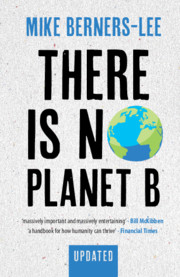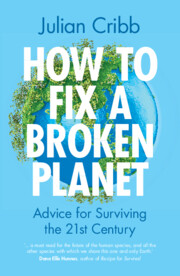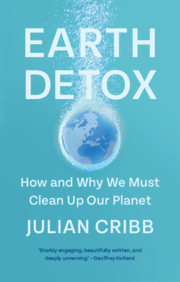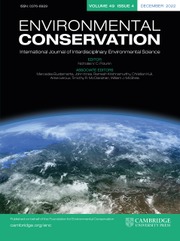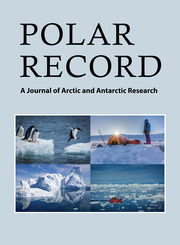There Is No Planet B
Feeding the world, climate change, biodiversity, antibiotics, plastics, pandemics - the list of concerns seems endless. But what is most pressing, and what should we do first? Do we all need to become vegetarian? How can we fly in a low-carbon world? How can we take control of technology? And, given the global nature of the challenges we now face, what on Earth can any of us do, as individuals? Mike Berners-Lee has crunched the numbers and plotted a course of action that is full of hope, practical, and enjoyable. This is the big-picture perspective on the environmental and economic challenges of our day, laid out in one place, and traced through to the underlying roots - questions of how we live and think. This updated edition has new material on protests, pandemics, wildfires, investments, carbon targets and of course, on the key question: given all this, what can I do?
- Updated edition of the bestselling environmental trade book
- This completely updated edition brings the reader even more handy tips on how to help combat the climate emergency and other environmental problems
- New to this edition: expanded 'What can I do?' section; Extinction Rebellion, school children marches, the role of protest; more for the business community on offsetting, carbon net zero, and investing; pandemics and COVID-19; Australian wildfires.
- Provides the big picture on environmental issues meeting the public's yearning for perspective and clarity about what is going on
- Offers a joined-up picture of how to improve humanity's existence on Earth: science, technology, economics, values, politics and more are all considered together, providing a coherent response that one discipline at a time can't give
- Provides an essential guide for everyone, from the layperson to policy makers
Product details
January 2021Paperback
9781108821575
336 pages
197 × 129 × 20 mm
0.36kg
Available
Table of Contents
- Acknowledgements
- What is New in this Updated Edition? Notes on Units
- Introduction
- 1. Food
- 2. More on Climate and Environment
- 3. Energy
- 4. Travel and Transport
- 5. Growth, Money and Metrics
- 6. People and Work
- 7. Business and Technology
- 8. Values, Truth and Trust
- 9. Thinking Skills for Today's World
- 10. Protest
- 11. Big-Picture Summary
- 12. What Can I Do? Summary
- Appendix: Climate Emergency Basics
- Alphabetical Quick Tour
- Notes on Units
- Endnotes
- Index.

